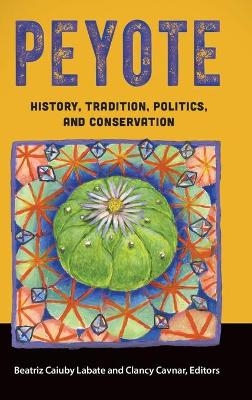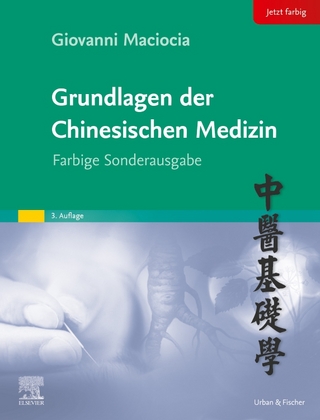
Peyote
History, Tradition, Politics, and Conservation
Seiten
2016
Praeger Publishers Inc (Verlag)
978-1-4408-3400-4 (ISBN)
Praeger Publishers Inc (Verlag)
978-1-4408-3400-4 (ISBN)
This book explains the role that peyote-a hallucinogenic cactus-plays in the religious and spiritual fulfillment of certain peoples in the United States and Mexico, and examines pressing issues concerning the regulation and conservation of peyote as well as issues of indigenous and religious rights.
This book explains the role that peyote—a hallucinogenic cactus—plays in the religious and spiritual fulfillment of certain peoples in the United States and Mexico, and examines pressing issues concerning the regulation and conservation of peyote as well as issues of indigenous and religious rights.
Why is mescaline—an internationally controlled substance derived from peyote—given exemptions for religious use by indigenous groups in Mexico, and by the pan-indigenous Native American Church in the United States and Canada? What are the intersections of peyote use, constitutional law, and religious freedom? And why are natural populations of peyote in decline—so much so that in Mexico, peyote is considered a species needing "special protection"? This fascinating book addresses these questions and many more. It also examines the delicate relationship between "the needs of the plant" as a species and "the needs of man" to consume the species for spiritual purposes.
The authors of this work integrate the history of peyote regulation in the United States and the special "trust responsibility" relationship between the American Indians and the government into their broad examination of peyote, a hallucinogenic cactus containing mescaline that grows naturally in Mexico and southern Texas. The book's chapters document how when it comes to peyote, multiple stakeholders' interests are in conflict—as is often the case with issues that involve ethnic identity, religion, constitutional interpretation, and conservation. The expansion of peyote traditions also serves as a foundation for examining issues of international human rights law and protections for religious freedom within the global milieu of cultural transnationalism.
This book explains the role that peyote—a hallucinogenic cactus—plays in the religious and spiritual fulfillment of certain peoples in the United States and Mexico, and examines pressing issues concerning the regulation and conservation of peyote as well as issues of indigenous and religious rights.
Why is mescaline—an internationally controlled substance derived from peyote—given exemptions for religious use by indigenous groups in Mexico, and by the pan-indigenous Native American Church in the United States and Canada? What are the intersections of peyote use, constitutional law, and religious freedom? And why are natural populations of peyote in decline—so much so that in Mexico, peyote is considered a species needing "special protection"? This fascinating book addresses these questions and many more. It also examines the delicate relationship between "the needs of the plant" as a species and "the needs of man" to consume the species for spiritual purposes.
The authors of this work integrate the history of peyote regulation in the United States and the special "trust responsibility" relationship between the American Indians and the government into their broad examination of peyote, a hallucinogenic cactus containing mescaline that grows naturally in Mexico and southern Texas. The book's chapters document how when it comes to peyote, multiple stakeholders' interests are in conflict—as is often the case with issues that involve ethnic identity, religion, constitutional interpretation, and conservation. The expansion of peyote traditions also serves as a foundation for examining issues of international human rights law and protections for religious freedom within the global milieu of cultural transnationalism.
Beatriz Caiuby Labate, PhD, is professor at the Center for Research and Post Graduate Studies in Social Anthropology (CIESAS), in Guadalajara, Mexico, and visiting professor at the Drug Policy Program of the Center for Economic Research and Education (CIDE), in Aguascalientes, Mexico. Clancy Cavnar, PsyD, is a research associate of the Nucleus for Interdisciplinary Studies of Psychoactives (NEIP) and a clinical psychologist who works at a dual diagnosis residential drug treatment center in San Francisco, CA.
| Erscheint lt. Verlag | 18.1.2016 |
|---|---|
| Vorwort | James A. Bauml, Stacy B. Schaefer |
| Zusatzinfo | 27 bw illus |
| Sprache | englisch |
| Maße | 156 x 235 mm |
| Gewicht | 737 g |
| Themenwelt | Sachbuch/Ratgeber ► Gesundheit / Leben / Psychologie ► Alternative Heilverfahren |
| Medizin / Pharmazie ► Naturheilkunde ► Phytotherapie | |
| Sozialwissenschaften ► Soziologie | |
| ISBN-10 | 1-4408-3400-8 / 1440834008 |
| ISBN-13 | 978-1-4408-3400-4 / 9781440834004 |
| Zustand | Neuware |
| Haben Sie eine Frage zum Produkt? |
Mehr entdecken
aus dem Bereich
aus dem Bereich
Buch | Softcover (2023)
Urban & Fischer in Elsevier (Verlag)
CHF 44,75
Farbige Sonderausgabe
Buch | Hardcover (2023)
Urban & Fischer in Elsevier (Verlag)
CHF 244,95


